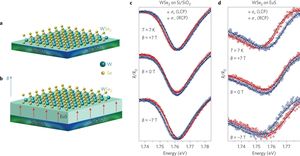Richard Grenell, special envoy of former President Donald Trump, recently made headlines by visiting Venezuela and meeting with President Nicolás Maduro, marking a notable departure from the longstanding U.S. approach toward the South American country. Within hours of Grenell's arrival at the Miraflores Palace, the political climate shifted dramatically, igniting discussions about the future of U.S.-Venezuela relations.
Historically, U.S. relations with Venezuela have been fraught, especially during the Trump presidency when the administration employed aggressive tactics to isolate Maduro. Yet, on February 2, 2025, Grenell's groundbreaking visit signaled potential therapeutic resets, evidenced by his ability to secure the release of six American nationals detained under Maduro's regime. Addressing the media shortly after the meeting, Grenell proclaimed, "We are wheels up and headed home with these 6 American citizens," symbolizing not just the release but also the beginning of what he termed "an era of negotiation" with the Venezuelan government.
The backdrop to this meeting involves years of tense diplomacy. Maduro, whose legitimacy as president has been largely undermined internationally, found value and strength during the meeting by showcasing pictures shared through state-controlled media. These images depicted Grenell smiling alongside Maduro, holding Venezuelan artifacts between the U.S. and Venezuelan flags, contrasting starkly with the silence and absence of visual engagement seen during earlier meetings with the Biden administration.
Grenell's summit with Maduro resulted not only in the release of American prisoners but also laid groundwork for Venezuelan authorities to agree on the repatriation of deported migrants. This is particularly significant, as these migrants include members of the infamous Tren de Aragua criminal gang. Trump's remarks on social media following the meeting underscored the success of these negotiations: "It is so good to have the Venezuela Hostages back home,” he declared, highlighting the dual focus on repatriation and migration reform.
Experts believe Grenell's two-day diplomatic mission could reshape U.S. strategies moving forward. Geoff Ramsey, a senior fellow at the Atlantic Council, noted, “It’s like U.S.-Venezuela relations went from zero to one hundred miles per hour overnight.” His analysis speaks volumes about how rapidly the dynamics can change when personal diplomacy is employed.
Despite the optimism surrounding Grenell's visit, it remains uncertain whether Maduro will adhere to his commitments concerning the deportation of Venezuelan nationals back to their home country. While this agreement symbolizes Trump’s push to reaffirm control over immigration policies, it also raises questions of ethical foreign diplomacy, particularly with respect to Maduro's autocratic regime and its historical violations of human rights.
There remains skepticism about Trump's overarching plan. The practicalities of enforcing such deportations could face hurdles at various levels of Venezuela's political structure and might run afoul of existing U.S. laws on the treatment of migrants. Opponents of the Trump administration are already questioning the potential for U.S. tacitly re-engaging with Maduro and turning their back on the Venezuelan opposition.
Political analysts note, “This could signal America’s softening stance on Maduro, raising alarms among traditional opponents and advocates for democratic governance.” There is, hence, significant discourse surrounding what the phrase “America First” really means as it revolves around countries like Venezuela, wherein socio-economic conditions are constantly deteriorated by corruption and mismanagement.
Venezuelan public opinion on Trump's meeting with Maduro is equally varied. Some enthusiasts within the local opposition feel betrayed and express concerns about the international community abandoning aspirations for democracy and change. Meanwhile, the government's official response has been to celebrate and utilize Grenell’s visit to bolster Maduro’s standing—invoking narratives of restoration and respectability on the global stage.
Continuing, experts argue Trump’s decisions will likely reflect upon strategic interests more than humanitarian concerns, pushing forward what could morph to being viewed as “oil for migrants.” With Chevron’s continued operations and the potential easing of economic sanctions, there seems to be undercurrents favoring business dealings over outright condemnation of the political regime.
What’s clear is the unpredictability of future relations between the United States and Venezuela—a two-fold equation balancing the release of hostages and immigration negotiations with inherent challenges posed by global scrutiny and local dissent. Social media pundits have ignited conversations about what Grenell’s visit signifies, unleashing opinions on everything from potential concessions made by both parties to underlying motives linking energy policies and deportation efforts.
While Grenell's diplomatic outreach can be seen as momentarily successful, the ramifications of these developments remain still too early to measure. With Venezuela remaining precariously balancing both its internal struggles and the dynamics of international diplomacy, the actions taken this February will yield consequences likely felt for years to come. Only time will tell if this shift will lead to constructive progression toward improved relations between the U.S. and Venezuela, or result merely as another episode of opportunistic politics.



